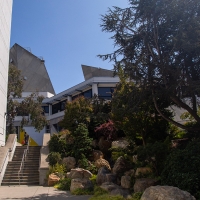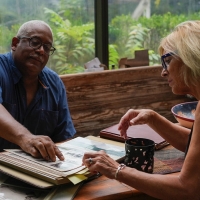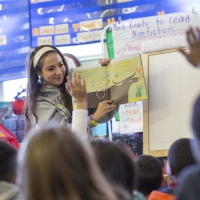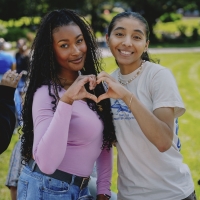Debut novel by SF State alum shows the comfort of surviving in nature
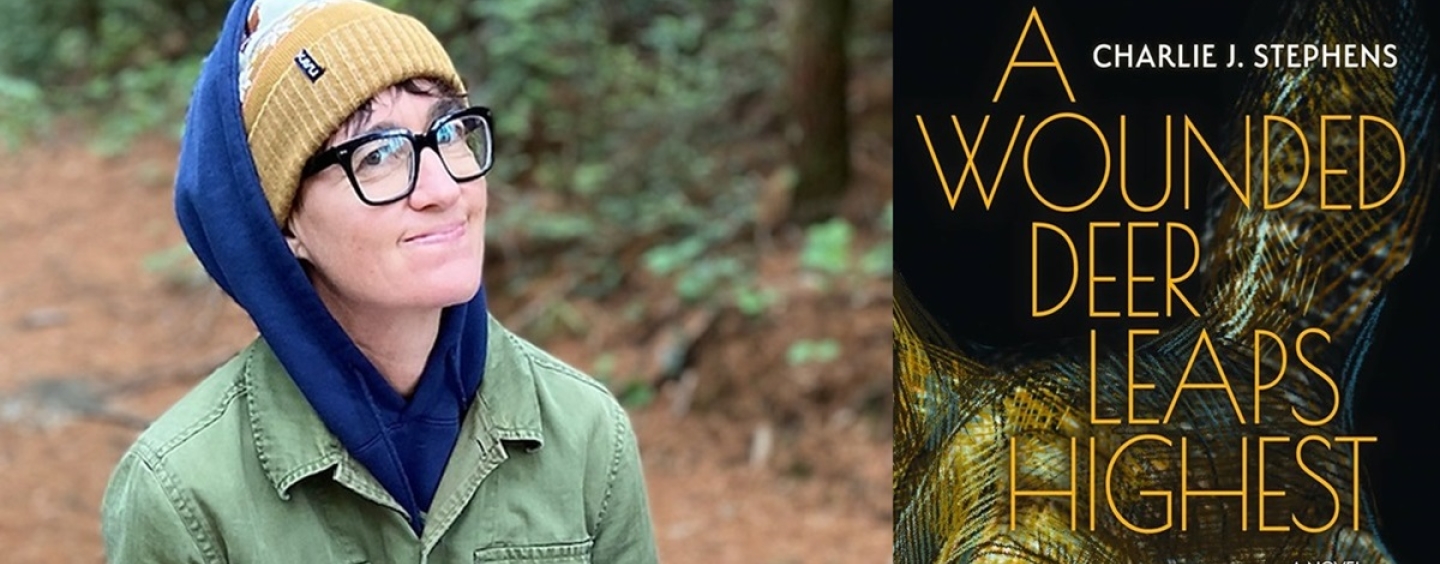
Charlie J. Stephens’ ‘A Wounded Deer Leaps Highest’ follows a nonbinary child escaping danger into the refuge of the woods
The debut novel from San Francisco State University graduate Charlie J. Stephens shows how the grace of nature can be an oasis of solace in times of strife. “A Wounded Deer Leaps Highest” follows a nonbinary child, Smokey, in Oregon in the 1980s. As their mother’s boyfriends come and go, Smokey aches for the comfort and safety their mother can never quite provide. When a dangerous new man moves in, Smokey finds refuge in the forests, giving themselves over to the strength and beauty of the environment.
Stephens (M.A., ’09) has worked as a bike messenger, shark diver, wilderness guide, high school English teacher and more. After moving back to their home state of Oregon, they opened Sea Wolf Books & Community Writing Center by the coast in Port Orford.
Stephens recently took the time to answer questions from SF State News during their recent writing residency in Palmer, Alaska, thanks to Pam Houston’s nonprofit organization, Writing by Writers.
What inspired you to make “A Wounded Deer Leaps Highest” into your debut novel?
The novel developed from a short story that I worked on for about eight years. It was kind of a strange experience/process because even though I worked on it for so much time, it never really got longer, just more developed and solid-feeling. When it eventually got published in a literary journal, I thought that would be the end of that piece. But because I spent so much time on it and knew those characters so well, developing the story into a full novel wasn’t that much of a stretch, and I found myself wanting to keep going with it. The result is “A Wounded Deer Leaps Highest,” which was published by Torrey House Press in April of this year.
How closely is the story and the main character, Smokey, based on you and your life?
The novel is a work of fiction (only about 5 – 10% from my own life experiences — the main one being that I grew up in Oregon in the ’80s and early ’90s) but I always consider it a compliment when people think it’s autobiographical. I hope that means that the story feels believable, personal and emotionally compelling to the reader in some way.
How did you discover the healing powers of nature?
I’ve always been connected to nature, having grown up in the Pacific Northwest and with a family who really appreciated the outdoors, plants and animals, being outside and trying to be good stewards for our land and waterways. Growing up working class in particular was part of this connection, as the plants and animals around me were always present, accessible and delightful — regardless of the houses we lived in or how much money we had.
You mentioned the book “deals with queerness in a complex way.” Please explain more about this approach and why you chose it.
This is a difficult time we are experiencing as humans (and animals) on almost every level. Queer people, trans people and nonbinary people are being strategically targeted on national, state and local levels. With the rise of book banning, textbook overhaul, the attack on public libraries, not being able to even say the word “gay” in many school districts and the criminalization of children and their families seeking gender-affirming care, it feels both vulnerable (for me as the gender non-conforming author of this novel) and critically important to show a nonbinary child in literature, in both beautiful ways as well as in showing some of the forces that don't really want that child (or others like them) to exist or thrive.
Why did you choose San Francisco State for graduate school?
I chose SF State because of its accessibility and its commitment to social justice throughout many of its programs, as well as for its campus diversity as a whole. I received my Master of Arts in Equity and Social Justice Education.
Can you describe a pivotal moment at San Francisco State that changed or impacted your life?
Being in a classroom with Jeff Duncan-Andrade was the most meaningful aspect of my time at SF State. His radical thinking, personal presence, compassion and commitment to youth and the adults who work with them was deeply profound, and the effects of his teaching have been long-lasting.
Tell us about Sea Wolf Books & Community Writing Center: Why did you decide to establish this?
After teaching in different capacities for most of my life — most recently as a high school English teacher — I needed a change after the pandemic. I decided to leave the Bay Area for the Oregon Coast and wanted to do something that I thought would benefit my newfound community. With my love for literature and my commitment to teaching, opening up a bookstore and writing center seemed like it would serve a need and also be something personally fulfilling, fun and engaging. It has been all that and more, and I’m incredibly grateful for it.
What do you want to be known for?
I’d like to be known as a writer, teacher and human who was brave enough to be publicly vulnerable, thoughtful and honest in this overwhelming world we find ourselves inhabiting.
Learn more about the SF State Graduate College of Education.
Tags
